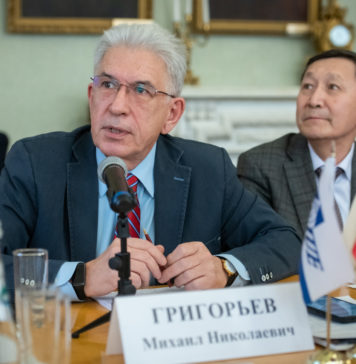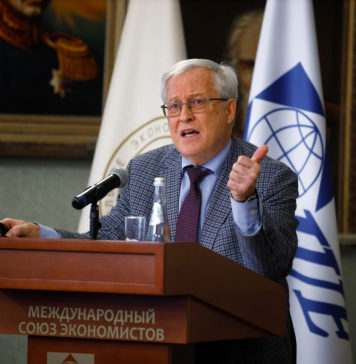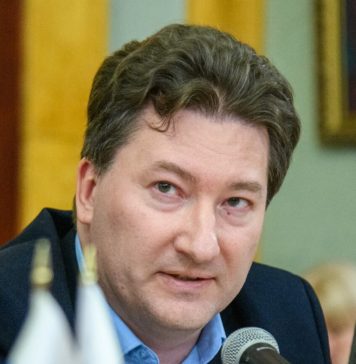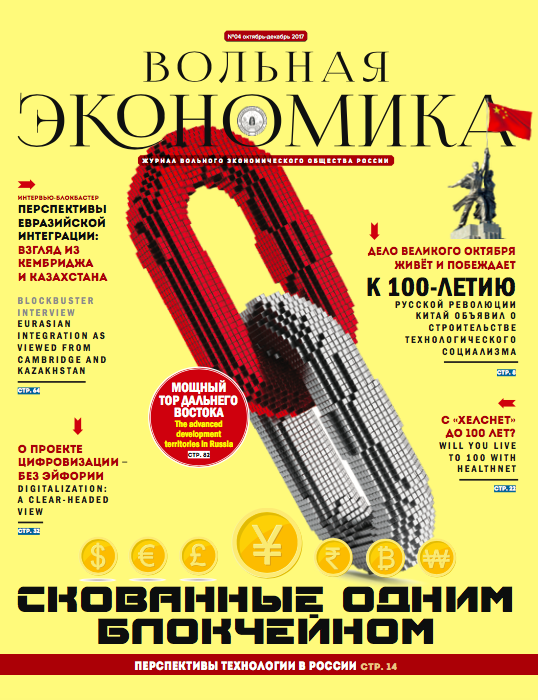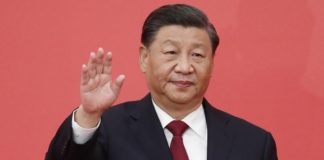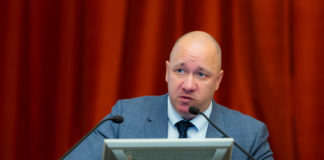Edwards: Esther Duflo is a professor of Development Economics at M.I.T., and the Poverty Lab was set up to find non-traditional approaches to poverty alleviation. She also co-authored with her colleague, Abhijit V. Banerjee, Poor Economics. A Radical Rethinking of the Way to Fight Global Poverty. I met Miss Duflo after her Richard Goode lecture at the IMF earlier this month. So, why has your work been so focused on poverty reduction?
Duflo:This is where you can make the biggest difference. I came to economics to study poverty. I didn’t choose poverty once I was already in economics. I came to economics once I realized that it was a powerful way to making a difference of the life of poor people. So, in a sense the question for me was more, why economics and not some other field.
Edwards: Is it getting easier to collect data in places like India where you do a lot of your work, and what is the impact on your work?
Duflo: Well I think what has changed is not so much the ease of collecting data as the ability to access a range of data or to combine survey data, and expenditure data, and administrative data. For example, for one of the projects that I presented today there was a survey, there was access to the financial data, there was access to the census, and then you can of course use all of these sources of data together and put them to creative use. It has also become easier with the advent of the tablet to collect data, to have surveys that are really well designed for answering the questions that you want to answer.
Edwards: But do you think that we have a much better understanding of how poor people live now because of access to data?
Duflo: I think we have made a lot of progress. I don’t know if it’s the access to data so much that does make the difference or the willingness to collect the data that was the right data to do that. In a sense maybe… 30 years ago there was too much reliance on kind of aggregate statistics that are not necessarily that illuminating for understanding the precise way in which the poor work. And then there is now much more willingness to go out in the field and collect very specific survey data on the question that’s of interest and of course that combined with the course in experimental work has given us I think a much better window on how people work and function.
Edwards: And in this book that you publish with Mr. Banerjee there was a great emphasis on the need to understand how the poor live, and did you feel the more that, you know, you research the poor, do you feel that at times that you’re too far removed from the realities that these people live on a daily basis?
Duflo: We tried not to be in that situation because the more you are in this situation the less relevant you become. So, I mean we are in the privileged position of working on the effect and the design of real intervention that affects real peoples so that gives you a pretty natural reason to go out in the field and see what is going on. So, at a field level I think there is no such danger because you think, on the contrary, more and more people are clearly trying to spend a lot of time in the field trying to understand what’s going on. At a personal level you know you’re kind of fighting against aging and you know more responsibility coming with that, and children, and the like, which makes going to the field more difficult than it was before. So, for me that’s kind of a struggle, in part, because I think it’s important but, in a larger part, because I really enjoy it, so I get frustrated by the fact that I can’t spend as much time as before in the field.
Edwards: Talk to me a little about the Poverty Lab, of which you’re you’re a co-founder. You know, a lot of the focus on the issues that one wouldn’t normally associate with, or wouldn’t expect from, a group of economists. You know, AIDS, girls school attendance, and women’s leadership roles. How do you think that the field of economics can help address issues like that?
Duflo: Well I think it might have been a little bit of an accident that this development took place within economics in the sense that economists have always been good with statistics as well. And that has given us the ability to master the tools that allow us to look at the impact of various types of projects. Not projects that necessarily have any impact on, or have anything to do directly with, income or money or stuff that economists would be traditionally associated with. I think there is also the fact for development, that has been recognized for a very long time, that poverty is made of multiple angles. It’s not just lack of money but it’s also lack of education, and lack of health, and lack of information, and lack of political inclusion and awareness, etc. etc. And, therefore, it’s not wholly even feasible to try and think of addressing poverty without being in principle open to all those dimensions.
Edwards: And so, your presentation today focused on the loss of money through corruption. What do you think the real impact on people, on the population is of these leakages? I mean, is it all about economics or does it go beyond, you know, an economic impact or are there social implications there as well?
Duflo: There are social implications there as well because when people see that there is massive theft inside a system, I think, they also lose confidence in it. So, beyond the direct loss of income for them or for the government, depending on where the source of corruption is located, there is also the loss of trust in what the government is doing. And that can be very nefarious and hard to avert. So, for example in the context of health there is a big problem with absenteeism. So, it’s a form of corruption, if you want, to never show up for work, and there is a direct effect on health because the people instead of going to the local center, which is closed half of the time, go to unqualified practitioners that are on the area. But there is a marginal effect on sort of mistrust of anything the government does and therefore mistrust of any messages that they have to share. So, if the nurse never comes, the day she tells you that you should immunize your kids why would you take her seriously? You know, why would you trust this person who clearly doesn’t have your best interests at heart? And that’s the big issue.
Edwards: You know, I thought it was interesting that you wrapped it up by saying this is all about providing better customer service. Do you think that’s a more effective approach to addressing issues like corruption, just improving the service that you provide to citizenry?
Duflo: Yes. So, this is something that sort of I became increasingly conscious of. If you just fix infrastructure and nothing touches the customer then the changes will be much less likely to stick because there’s not going to be a constituency of people who are going to support you. So, to continue with the example on health. Once we tried to work with the government to address the absenteeism problem by giving very strong incentive to nurses to show up. But I think people are so despondent about the system that they didn’t come back. The nurses showed up more for a while but the people didn’t come to the health centers, they were still empty. And then there was a collusion between the nurses and the doctors that supervised them. So, everything fell apart. But a deep reason for it to fall apart was that nobody cared in the end whether they come or don’t come. Doesn’t matter because the customer service, if you will, was really too bad.
Edwards: So, I was reading an article about you in a magazine that the IMF publishes, called “Finance and Development”, and it was published back in 2003 and there’s a quote of you back then that said that economics was a relatively macho culture. Did you think that has changed at all? Do you think that women’s perspectives inform policy more than they did perhaps 10 years ago?
Duflo: Not really. I think we still have… We still got to play with issues of sexism that… Not in development, I must say. Development is a quite gender-neutral field, it has men and women. But in macro, for example, almost every… there are only men.
Edwards: But do you think that that continues to be reflected in policy?
Duflo: I would almost say it’s the opposite, that I wish that some men would be working on gender issues, that I find it problematic that most of the work on gender is done by women because that makes gender a woman issue. It’s not the case for race, thank goodness. A lot of white economists work on race issues but not very many male economists work on female issues. So, I think that’s more of a problem. If we had many more female macroeconomists it might make it a friendlier arena. But I don’t know if substance-wise they would do anything deeply different.
Interviewed by IMF’s Bruce Edwards on an imf.org podcast

